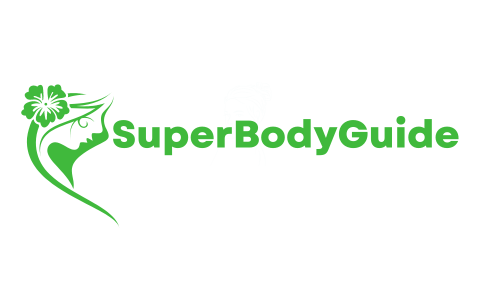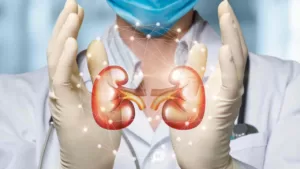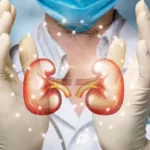The Best Fluffy Pancakes recipe you will fall in love with. Full of tips and tricks to help you make the best pancakes.
Sinus infections, also known as sinusitis, can be a real pain – literally. If you’ve ever experienced the throbbing pressure and congestion that comes with a sinus infection, you know just how uncomfortable it can be. But fear not, there are natural remedies that can help alleviate the symptoms and speed up recovery. In this article, we will delve into the causes and symptoms of sinus infections, and explore a range of natural remedies that can provide relief.
From steam and heat therapy to dietary modifications and hydration, we’ll cover it all. We’ll discuss how to assess the efficacy of these natural remedies and when it might be time to seek medical intervention. Whether you’re looking for ways to prevent sinus infections or seeking information on chronic sinusitis and its complications, this comprehensive guide has got you covered. So, if you’re ready to bid farewell to the discomfort of sinus infections, keep reading to discover the natural solutions that could make all the difference.
Key Takeaways:
- Utilize steam and heat therapy to relieve sinus pressure and open up nasal passages.
- Practice nasal irrigation regularly to flush out mucus and irritants from the sinuses.
- Incorporate bromelain supplements and a modified diet to reduce inflammation and boost the immune system.
Understanding Sinus Infections
Understanding sinus infections involves gaining knowledge about the causes, symptoms, and potential treatments of sinusitis, a condition that can cause significant discomfort and impact daily life.
Sinusitis is often triggered by viruses, bacteria, or allergens, leading to inflammation of the sinus cavities. Common symptoms include congestion, facial pain, headaches, and nasal discharge. In severe cases, individuals may experience fever, fatigue, and reduced sense of taste or smell. Sinus infections can also exacerbate asthma and other respiratory conditions, impacting overall health.
Treatment for sinus infections may involve antibiotics, decongestants, or nasal corticosteroids to alleviate symptoms and clear the infection. Sinus irrigation and steam inhalation can provide relief. In chronic cases, surgery to improve sinus drainage may be necessary.
What Is Sinusitis?
Sinusitis, commonly known as a sinus infection, refers to the inflammation or swelling of the tissue lining the nasal passages and sinuses, often leading to discomfort and congestion.
When the sinuses become blocked and filled with fluid, it creates a favorable environment for bacteria, viruses or fungi to multiply, resulting in infection. This condition can cause symptoms such as pain and tenderness around the eyes, cheeks, and forehead, as well as a reduced sense of taste and smell.
The inflamed nasal passages and sinus cavities can lead to headaches, facial pressure, difficulty breathing through the nose, and a persistent cough due to postnasal drip. In some cases, sinusitis can also lead to a sore throat, fatigue, and fever.
What Causes a Sinus Infection?
Sinus infections can be caused by various factors, including allergies, viral infections, or bacterial growth within the sinuses, prompting the need for effective natural remedies and treatments.
Allergens, such as pollen, dust mites, and pet dander, are common triggers for sinus infections in individuals with allergic sensitivities. Additionally, viruses like the common cold or influenza can lead to inflammation and congestion in the sinuses, creating an ideal environment for bacterial overgrowth. In some cases, bacterial infections, particularly those caused by certain strains of bacteria such as Streptococcus pneumoniae or Haemophilus influenzae, can directly contribute to sinus infection.
When exploring natural remedies, essential oils like eucalyptus, tea tree, and peppermint have gained attention for their potential to alleviate sinusitis symptoms. These oils are believed to possess antimicrobial and anti-inflammatory properties, offering relief from congestion and promoting sinus drainage. It is essential to approach these remedies with caution and consult with a healthcare professional to ensure their safety and efficacy in individual cases.
Symptoms of a Sinus Infection
The symptoms of a sinus infection may include facial pain, pressure in the sinus areas, nasal congestion, and post-nasal drip, necessitating the consideration of natural remedies for relief.
Sinus pain, often concentrated around the forehead, cheeks, and eyes, can be debilitating. The buildup of pressure in the sinus areas leads to discomfort and headaches. The persistent congestion and post-nasal drip contribute to breathing difficulties and a constant feeling of heaviness.
Natural remedies such as saline nasal rinses, steam inhalation, and essential oils may provide relief by reducing inflammation and promoting drainage. These options can complement traditional treatments and help alleviate the discomfort associated with sinus infections.
Natural Remedies for Sinus Infections
Natural remedies offer a holistic approach to alleviate sinus infections, encompassing various techniques such as nasal rinses, steam inhalation, and the use of warm compresses for comfort and relief.
Home remedies have been widely recognized for their effectiveness in providing relief from sinus infections. The use of neti pots with distilled saline water is a popular traditional method that helps to irrigate the nasal passages, reducing congestion and promoting drainage. Inhaling steam through eucalyptus or peppermint essential oils can provide soothing relief for the sinuses. These natural remedies not only alleviate symptoms but also help in maintaining a balanced and healthy sinus environment.
Steam and Heat Therapy
Steam and heat therapy can provide significant relief for sinus infections, as inhaling hot steam from a bowl of water or using humidifiers can help soothe congestion and discomfort.
When steam is inhaled, it can help to moisten and soothe the irritated nasal passages, promoting drainage and easing the pressure in the sinuses. The heat from steam can also help to dilate the blood vessels around the sinuses, improving blood flow and reducing inflammation.
Using a humidifier in the room can maintain optimal moisture levels, preventing the nasal passages from drying out and becoming more susceptible to infections. The moist air from the humidifier can assist in loosening mucus, making it easier to expel and providing relief from the symptoms of sinus infections.
Nasal Irrigation
Nasal irrigation, often performed using a neti pot and warm water, serves as an effective method to cleanse the nasal passages and alleviate sinus discomfort through natural means.
This ancient technique, also known as saline nasal irrigation, has been used for centuries to help with sinus infections, allergies, and nasal congestion. By flushing out mucus and debris from the nasal passages, it can promote sinus drainage and relieve pressure, leading to improved breathing and reduced inflammation.
The use of saline solution in nasal irrigation helps to restore moisture to the nasal passages, which can be particularly beneficial in dry climates or during winter months. This natural remedy can also help reduce the frequency of sinus infections and minimize the need for antibiotics, making it a preferred option for many individuals seeking a holistic approach to sinus health.
Yoga and Exercise
Engaging in yoga and exercise can contribute to managing sinus infections, as physical activity and specific yoga poses can help alleviate sinusitis symptoms and promote overall well-being.
Regular exercise and yoga movements can aid in improving blood circulation and reducing inflammation in the sinuses, which are often associated with sinus infections. The deep breathing techniques practiced in yoga can enhance respiratory function and support sinus drainage, helping to alleviate congestion and pressure in the nasal passages.
The holistic approach of yoga can reduce stress levels and improve immune function, which may fortify the body’s ability to ward off sinus infections. The combination of physical activity and mindful relaxation in yoga can have a positive impact on overall wellness and provide relief from the discomfort of sinusitis symptoms.
Bromelain Supplements
Bromelain supplements have been recognized for their potential to alleviate sinus infections naturally, offering an alternative approach to managing sinusitis and its associated discomfort.
Extracted from pineapple stems, bromelain contains enzymes that may help reduce swelling and inflammation in the sinus passages, providing relief from congestion and pressure. Its natural properties make it an attractive option for those seeking holistic remedies for sinus issues. Some studies suggest that bromelain may also aid in thinning mucus, making it easier to expel and clear the airways.
Incorporating bromelain supplements into a comprehensive sinusitis management plan can complement other natural treatments such as nasal irrigation, steam inhalation, and proper hydration. This integrative approach focuses on addressing the root cause of sinus infections while promoting overall sinus health and well-being.
Diet Modification
Diet modification, including the inclusion of vitamin C-rich foods and immune-boosting nutrients, can contribute to combating sinus infections naturally, offering a comprehensive approach to managing the condition.
These dietary changes play a crucial role in bolstering the immune system, which is essential in fighting off the pathogens responsible for sinus infections. Integrating foods rich in vitamin C, such as citrus fruits, bell peppers, and strawberries, can strengthen the body’s defense mechanisms. Incorporating immune-boosting nutrients like zinc, selenium, and vitamin E from sources like nuts, seeds, and leafy greens can further support the body’s ability to combat sinus infections.
Hydration
Staying hydrated is crucial in managing sinus infections, as adequate hydration can aid in thinning mucus and promoting sinus comfort through natural remedies.
Drinking plenty of water helps to keep the mucus in the sinuses moist, which makes it easier to expel. Additionally, hydration plays a vital role in supporting the body’s natural healing processes. Incorporating herbal teas, such as peppermint or ginger, can provide relief due to their natural decongestant properties. Taking a holistic approach, maintaining proper hydration alongside other self-care methods can assist in alleviating the discomfort associated with sinus infections.
Dairy Elimination
Eliminating or reducing dairy consumption can be beneficial for individuals with sinus infections, as this diet modification may help alleviate sinusitis symptoms and support natural remedies for relief.
By avoiding dairy products, individuals can potentially reduce mucus production, which is often linked to sinus congestion and discomfort. This dietary adjustment can also lead to decreased inflammation, promoting a healthier respiratory system. Replacing dairy with alternative sources of nutrients such as calcium, vitamin D, and protein can be essential to maintaining overall health while managing sinus infections.
Assessing the Efficacy of Natural Remedies
Assessing the efficacy of natural remedies for sinus infections involves considering research findings, clinical trials, and the guidance provided by reputable sources such as the National Center for Complementary and Integrative Health.
Research in the field of sinus infection remedies has shown promising results for several natural approaches. Studies have highlighted the potential benefits of using saline nasal irrigation to alleviate symptoms and help clear sinus passages.
Clinical trials have indicated that certain herbal preparations, like echinacea and goldenseal, may have a positive impact on reducing the duration and severity of sinus infections.
Remember, it’s essential to consult with healthcare professionals or specialists before trying any natural remedies, especially if you have underlying health conditions or are taking medications.
How to Tell If Natural Remedies Are Working
Determining the effectiveness of natural remedies for sinus infections may involve monitoring symptom relief, seeking professional medical intervention if necessary, and staying attentive to changes in the condition’s severity.
One of the primary methods for evaluating the efficacy of natural remedies for sinus infections is to closely observe the relief of common symptoms such as nasal congestion, headaches, facial pain, and post-nasal drip. It’s essential to document any improvement or worsening of these symptoms over time as a gauge of the remedy’s impact. If the symptoms persist or aggravate, seeking medical intervention is crucial to prevent complications and ensure proper treatment. Professional guidance from a healthcare provider can offer valuable insight into the underlying cause of the infection and guide the appropriate use of natural remedies.
Medical Intervention for Sinus Infections
Medical intervention for sinus infections may involve the use of over-the-counter or prescription medications, guided by professional recommendations and the standards set by healthcare authorities such as the U.S. Food and Drug Administration and institutions like the Cleveland Clinic.
Over-the-counter medications for sinus infections often include decongestants to reduce nasal congestion and antihistamines to address allergy-related symptoms. These can provide relief from mild sinusitis. If the condition persists or becomes severe, seeking guidance from a healthcare professional is crucial as they may prescribe antibiotics to target bacterial infections. In some cases, nasal corticosteroids and saline nasal irrigation are recommended to reduce inflammation and clear nasal passages.
When to Seek Professional Treatment
Knowing when to seek professional treatment for sinus infections is crucial, especially when experiencing persistent sinus pain or when natural remedies fail to provide relief, necessitating prompt medical attention.
When symptoms persist for more than 10 days and are accompanied by severe headache, facial swelling, or fever, this could indicate the need for medical intervention. Seeking guidance from a healthcare professional becomes essential to ensure accurate diagnosis and appropriate treatment. Neglecting the persistent symptoms of a sinus infection can lead to potential complications such as the spread of infection to nearby structures, including the eyes or brain.
OTC and Prescription Medications
Over-the-counter and prescription medications for sinus infections may include decongestants, pain relievers, or antibiotics, and should be used judiciously in conjunction with natural remedies, guided by professional advice and reputable sources like the University of Rochester Medical Center and the National Institutes of Health Office of Dietary Supplements.
Decongestants, such as pseudoephedrine or oxymetazoline, work by narrowing the blood vessels in the nasal passages, reducing swelling and congestion. They can provide relief from sinus pressure and congestion, but it’s important to use them according to the recommended dosage and duration to avoid rebound congestion.
Pain relievers like acetaminophen or ibuprofen can help alleviate sinus pain and headache. These should also be used with caution and only as directed by a healthcare professional to prevent potential side effects or interactions.
In some cases, antibiotics may be necessary to treat bacterial sinus infections. It’s crucial to use antibiotics responsibly, as inappropriate use can contribute to antibiotic resistance. This decision should be made in consultation with a healthcare provider after a thorough evaluation of the condition.
Despite the benefits of medications, natural remedies can also play a valuable role in managing sinus infections.
- Saline nasal irrigation
- steam inhalation
- herbal remedies like eucalyptus oil have shown promise in providing relief from sinus symptoms.
Prevention and Additional Information
Preventing sinus infections involves adopting various measures such as practicing good nasal hygiene, staying informed about potential complications, and employing natural remedies to mitigate the risk of sinusitis and its associated discomfort.
Good nasal hygiene includes regular rinsing of the nasal passages with saline solution, avoiding exposure to irritants such as cigarette smoke and strong odors, and staying hydrated to keep the nasal mucosa moist. It is also important to be mindful of potential complications such as the spread of infection to the eyes, bones, or brain, and to seek prompt medical attention if any concerning symptoms arise. Additionally, natural remedies like steam inhalation, herbal supplements, and essential oils have shown potential in providing relief from sinusitis symptoms without the side effects associated with certain medications.
Prevention Tips for Sinus Infections
Prevention tips for sinus infections may include regular nasal irrigation, staying adequately hydrated, and considering the use of essential oils to support sinus health, offering proactive measures to reduce the likelihood of sinusitis.
Nasal irrigation, also known as nasal douche or wash, involves flushing out the sinuses with a saline solution to clear out mucus and allergens. This practice can help maintain the health of the nasal passages and reduce the risk of sinus infections.
Hydration plays a crucial role in preventing sinusitis as adequate fluid intake thins the mucus, making it easier to expel and reducing the likelihood of blockage. Incorporating essential oils such as eucalyptus or peppermint into a diffuser or humidifier can provide soothing relief for sinus discomfort, and some studies suggest they may have antimicrobial properties that could benefit sinus health.
Understanding Chronic Sinus Infections
Chronic sinus infections present ongoing challenges, often requiring sustained natural remedies, interventions, and professional guidance to manage the persistent symptoms and discomfort associated with recurrent sinusitis.
Recurrences of sinusitis can significantly impact one’s quality of life, causing chronic congestion, facial pain, headaches, and reduced sense of smell. In some cases, over-the-counter treatments such as saline nasal irrigation and steam inhalation may provide relief, while others may require prescription medications or even surgical interventions.
Seeking guidance from an otolaryngologist is often crucial in determining the most effective course of action for long-term management.
Sinus Infection Complications and Prevention
Understanding potential complications of sinus infections underscores the importance of proactive prevention, informed by reputable sources such as the UnityPoint Clinic Family and the National Library of Medicine, to address and mitigate the risks associated with sinusitis through natural remedies and interventions.
Sinus infections, often accompanied by symptoms such as facial pain, congestion, and headaches, can lead to more severe issues if left unaddressed. Complications may include the spread of infection to the eyes, bones, or brain, as well as the development of chronic sinusitis. Considering the potential impact, individuals can take proactive measures such as using saline nasal irrigation, applying warm compresses, and consuming immune-boosting foods to alleviate symptoms and prevent further escalation of the infection.
Frequently Asked Questions
What is a sinus infection and how can I cure it naturally?
A sinus infection, also known as sinusitis, is a condition where the sinus cavities become inflamed and swollen. It is usually caused by a viral or bacterial infection, and symptoms include congestion, headache, and facial pain. To cure a sinus infection naturally, you can try following these methods:
- Drink plenty of fluids to thin mucus and promote drainage.
- Use a warm compress to help alleviate sinus pressure.
- Try steam inhalation with essential oils like eucalyptus or peppermint.
- Include foods with anti-inflammatory properties in your diet, such as turmeric and ginger.
- Use a saline nasal spray to flush out mucus and allergens.
- Get enough rest and avoid irritants like smoke and pollution.
Can I use natural remedies to treat a sinus infection?
Yes, there are various natural remedies that can help alleviate symptoms of a sinus infection. Some options include:
- Herbal supplements like echinacea and goldenseal, known for their immune-boosting properties.
- Apple cider vinegar, which has antimicrobial and anti-inflammatory properties.
- Neti pots, which use a saltwater solution to flush out the sinuses.
- Garlic, known for its antibacterial and antiviral properties.
- Probiotics, which can help strengthen the immune system.
- Acupuncture, which may help relieve sinus pressure and pain.
Can I use essential oils to cure a sinus infection naturally?
Yes, some essential oils have properties that can help soothe sinus infection symptoms. You can try inhaling steam infused with oils like eucalyptus, peppermint, or tea tree. You can also mix a few drops of essential oils with carrier oils like almond or jojoba and massage onto your sinuses to help relieve congestion and pain.
How long does it take for a sinus infection to go away naturally?
The duration of a sinus infection can vary depending on the cause, severity, and individual health. In most cases, a sinus infection will resolve on its own within a week or two. With proper rest, hydration, and natural remedies, you can speed up the healing process and alleviate symptoms.
When should I see a doctor for a sinus infection?
If your sinus infection symptoms persist for more than two weeks, become severe, or you develop a fever, it’s best to seek medical attention. Your doctor may prescribe antibiotics or other medication to help treat the infection. They can also rule out any underlying conditions that may be causing your sinus infection.
Are there any lifestyle changes that can help prevent a sinus infection?
Yes, there are some lifestyle changes you can make to help prevent a sinus infection, such as:
- Practicing good hygiene, like washing your hands frequently.
- Avoiding irritants like cigarette smoke and pollution.
- Using a humidifier to keep the air moist.
- Staying hydrated by drinking plenty of fluids.
- Including foods with anti-inflammatory properties in your diet.
- Managing allergies and treating them promptly.








